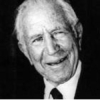Alexander Lowen

Alexander Lowen
Alexander Lowenwas an American physician and psychotherapist. A student of Wilhelm Reich in the 1940s and early 1950s in New York, he developed bioenergetic analysis, a form of mind-body psychotherapy, with his then-colleague, John Pierrakos. He is also noted for developing the concept of bioenergetic grounding, one of the foundational principles of bioenergetic therapy. Lowen was the founder and former executive director of the International Institute for Bioenergetic Analysis in New York City. The IIBA now has over 1500 members...
NationalityAmerican
ProfessionPsychologist
Date of Birth23 December 1910
CountryUnited States of America
As one grows older, the sense of separateness is slowly reduced. Old people do not live on an ego level. Their concerns are not about their individuality but about the river of life, the family, the community, the nation, people, animals, nature, life. They can die easily if they are assured that life will continue positively, for they feel part of the river again, and soon they will be part of the ocean. When they are very old, they no longer belong to our time and space, but to all time and all space.
Beneath the seemingly rational exterior of our lives is a fear of insanity. We dare not question the values by which we live or rebel against the roles we play for fear of putting our sanity in doubt.
It is only by making the past alive again for a person that a true growth in the present is facilitated. If the past is cut off, the future does not exist.
The primary nature of every human being is to be open to life and love. Being guarded, armoured, distrustful and enclosed is second nature in our culture. It is the means we adopt to protect ourselves against being hurt, but when such attitudes become characterological or structured in the personality, they constitute a more severe hurt and create a greater crippling than the one originally suffered.
Crying, that is, sobbing is the earliest and deepest way to release tension. Infants can cry almost from the moment of birth, and do so easily following every stress that produces a state of tension in the body... Human beings are the only creatures who can react in this way to stress and tension. Most probably, they are the only ones who need this form of release.
Mature love is not a surrender of the self but a surrender to the self. The ego surrenders its hegemony of the personality to the heart, but in this surrender it is not annihilated. Rather it is strengthened because its roots in the body are nourished by the joy that the body feels.
Because we are afraid of life, we seek to control or master it.
Spirit is not a mystic concept. The spirit of a person is manifest in her aliveness, brightness of his eyes, in the resonance of her voice and in the ease and gracefulness of his movements. These qualities are related to and stem from a high level of energy in the body... Sensing the harmony between the internal pulsation of our body and that in the universe, we feel identified with the universal, with God. We are like tuning forks vibrating at the same pitch
Love is the feeling that emanates from the heart and extends through the blood to every cell of the body.
Change is possible, but it must start with self-acceptance.
We live in an ocean of air like fish in a body of water. By our breathing we are attuned to our atmosphere. If we inhibit our breathing we isolate ourselves from the medium in which we exist. In all Oriental and mystic philosophies, the breath holds the secret to the highest bliss.
Faith is a quality of being: of being in touch with oneself, with life, and with the universe. It is a sense of belonging to one's community, to one's country and to the earth. Above all it is a feeling of being grounded in one's body, in one's humanity, and in one's animal nature. It can be all of these things because it is a manifestation of life, an expression of the living force that unites all beings. It is a biological phenomenon and not a psychic creation.
While the repression of a memory is a psychological process, the suppression of feeling is accomplished by deadening a part of the body or reducing its motility so that feeling is diminished. The repression of the memory is dependent upon and related to the suppression of feeling, for as long as the feeling persists, the memory remains vivid. Suppression entails the development of chronic muscular tension in those areas of the body where the feeling would be experienced. In the case of sexual feeling, this tension is found in and about the abdomen and pelvis
The feeling of love is a rich feeling, but the expression of love in word or deed is a joy.